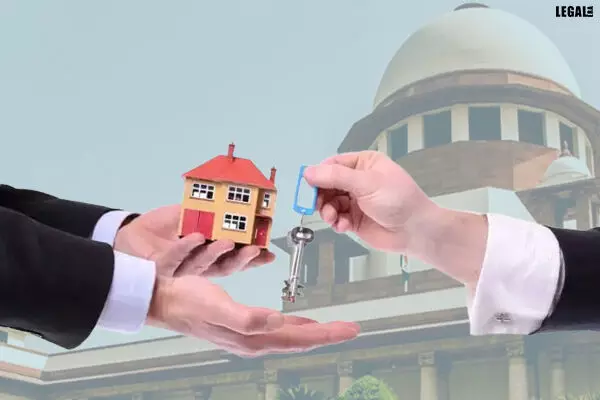- Home
- News
- Articles+
- Aerospace
- Agriculture
- Alternate Dispute Resolution
- Banking and Finance
- Bankruptcy
- Book Review
- Bribery & Corruption
- Commercial Litigation
- Competition Law
- Conference Reports
- Consumer Products
- Contract
- Corporate Governance
- Corporate Law
- Covid-19
- Cryptocurrency
- Cybersecurity
- Data Protection
- Defence
- Digital Economy
- E-commerce
- Employment Law
- Energy and Natural Resources
- Entertainment and Sports Law
- Environmental Law
- FDI
- Food and Beverage
- Health Care
- IBC Diaries
- Insurance Law
- Intellectual Property
- International Law
- Know the Law
- Labour Laws
- Litigation
- Litigation Funding
- Manufacturing
- Mergers & Acquisitions
- NFTs
- Privacy
- Private Equity
- Project Finance
- Real Estate
- Risk and Compliance
- Technology Media and Telecom
- Tributes
- Zoom In
- Take On Board
- In Focus
- Law & Policy and Regulation
- IP & Tech Era
- Viewpoint
- Arbitration & Mediation
- Tax
- Student Corner
- AI
- ESG
- Gaming
- Inclusion & Diversity
- Law Firms
- In-House
- Rankings
- E-Magazine
- Legal Era TV
- Events
- News
- Articles
- Aerospace
- Agriculture
- Alternate Dispute Resolution
- Banking and Finance
- Bankruptcy
- Book Review
- Bribery & Corruption
- Commercial Litigation
- Competition Law
- Conference Reports
- Consumer Products
- Contract
- Corporate Governance
- Corporate Law
- Covid-19
- Cryptocurrency
- Cybersecurity
- Data Protection
- Defence
- Digital Economy
- E-commerce
- Employment Law
- Energy and Natural Resources
- Entertainment and Sports Law
- Environmental Law
- FDI
- Food and Beverage
- Health Care
- IBC Diaries
- Insurance Law
- Intellectual Property
- International Law
- Know the Law
- Labour Laws
- Litigation
- Litigation Funding
- Manufacturing
- Mergers & Acquisitions
- NFTs
- Privacy
- Private Equity
- Project Finance
- Real Estate
- Risk and Compliance
- Technology Media and Telecom
- Tributes
- Zoom In
- Take On Board
- In Focus
- Law & Policy and Regulation
- IP & Tech Era
- Viewpoint
- Arbitration & Mediation
- Tax
- Student Corner
- AI
- ESG
- Gaming
- Inclusion & Diversity
- Law Firms
- In-House
- Rankings
- E-Magazine
- Legal Era TV
- Events
'Tenant at sufferance' liable to pay mesne profits for continuing to be in possession after expiry of lease: Supreme Court

'Tenant at sufferance' liable to pay mesne profits for continuing to be in possession after expiry of lease: Supreme Court
A tenant is liable to mesne profits in the event it continues to be in own possession after the expiry of the lease, as observed by the Supreme Court.
"While a tenant at sufferance cannot be forcibly dispossessed, that does not detract from the possession of the erstwhile tenant turning unlawful on the expiry of the lease.", the bench comprising Justices KM Joseph and PS Narasimha observed.
The issue to be considered was whether the possession of appellant-tenant can be termed wrongful on the expiry of lease?
In this regard, the Court noted that Section 111(a) of the Transfer of Property Act, 1882 provides that the lease is determined by efflux of time, that is, on the expiry of the lease, the lease ends. Relying on the case Atma Ram Properties (P) Ltd. v. Federal Motors (P) Ltd. (2005) 1 SCC 705, the bench observed:
"A tenant continuing in possession after the expiry of the lease may be treated as a tenant at sufferance, which status is a shade higher than that of a mere trespasser, as in the case of a tenant continuing after the expiry of the lease, his original entry was lawful. But a tenant at sufferance is not a tenant by holding over. While a tenant at sufferance cannot be forcibly dispossessed, that does not detract from the possession of the erstwhile tenant turning unlawful on the expiry of the lease. Thus, the appellant while continuing in possession after the expiry of the lease became liable to pay mesne profits."
The Court further observed that:
What the landlord is entitled is, to get damages for the use and occupation at any rate, at which, the landlord could have let out the premises on being vacated by the tenant. Section 2(12), no doubt, includes profits, which the person, in wrongful possession, might, with ordinary diligence, have received therefrom. The liability of the tenant, to pay damages on the basis of the rate at which landlord could have let out the premises, may not be the same as the profit the tenant might have received with ordinary diligence..
...Once the lease comes to an end, the erstwhile tenant becomes a tenant at sufferance. He cannot be dispossessed, except in accordance with law. But he cannot, in law, have any right or interest anymore. Even though, under Section 108 of the Transfer of Property Act, if there is no contract to the contrary, the tenant may have the right, under Section 108(j), to transfer his interest absolutely or even by sub-lease or mortgage, when the lease expires by afflux of time, his interest as lessee would come to an end.



